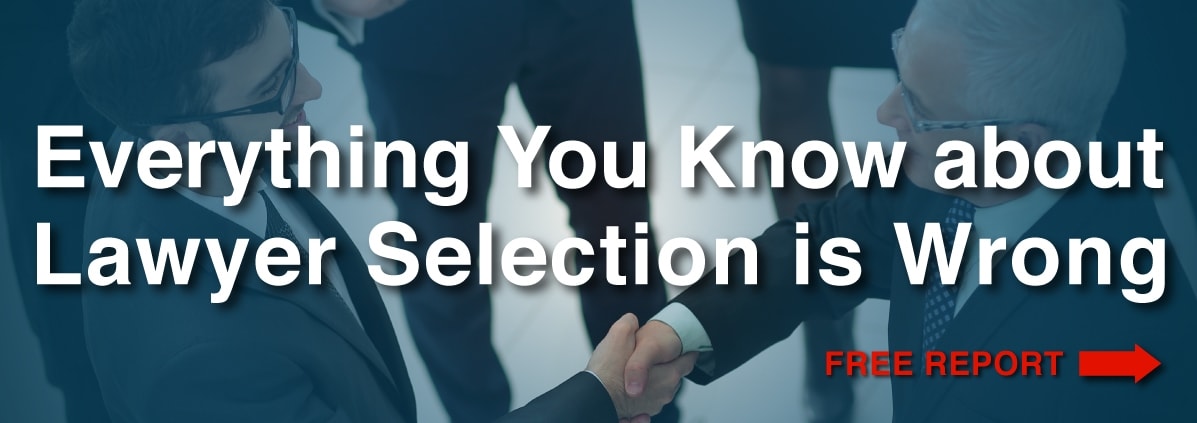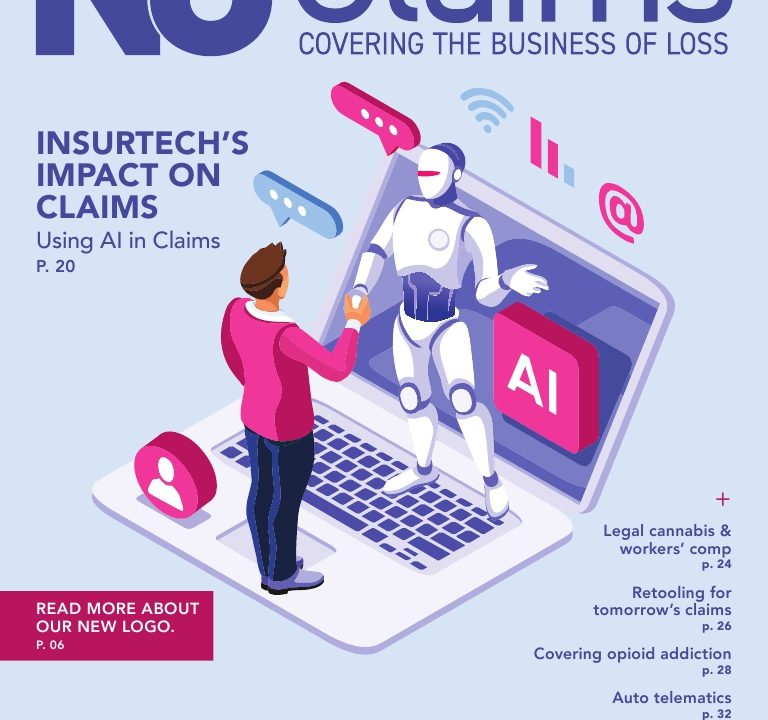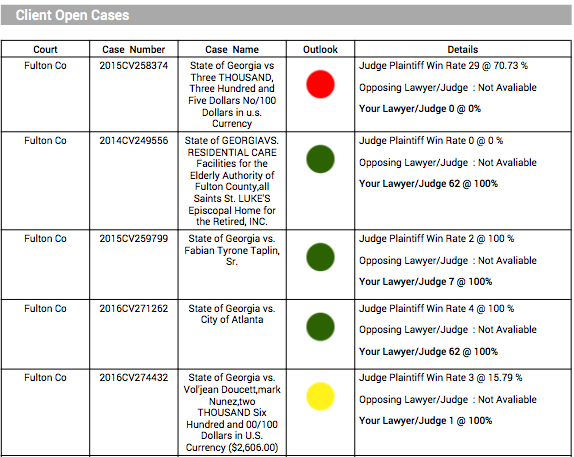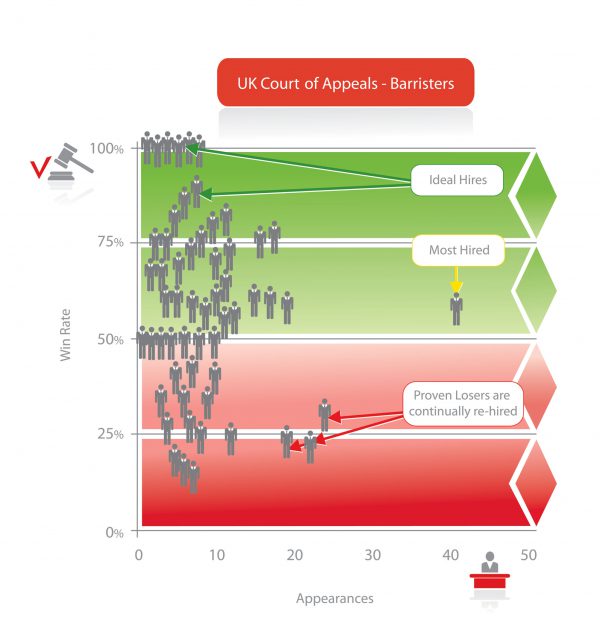Walmart Sees More Than Ten Times as Many Court Cases as Competing Retailers, Premonition Analytics New Survey Reveals
Walmart Sees More Than Ten Times as Many Court Cases as Competing Retailers, Premonition Analytics New Survey Reveals
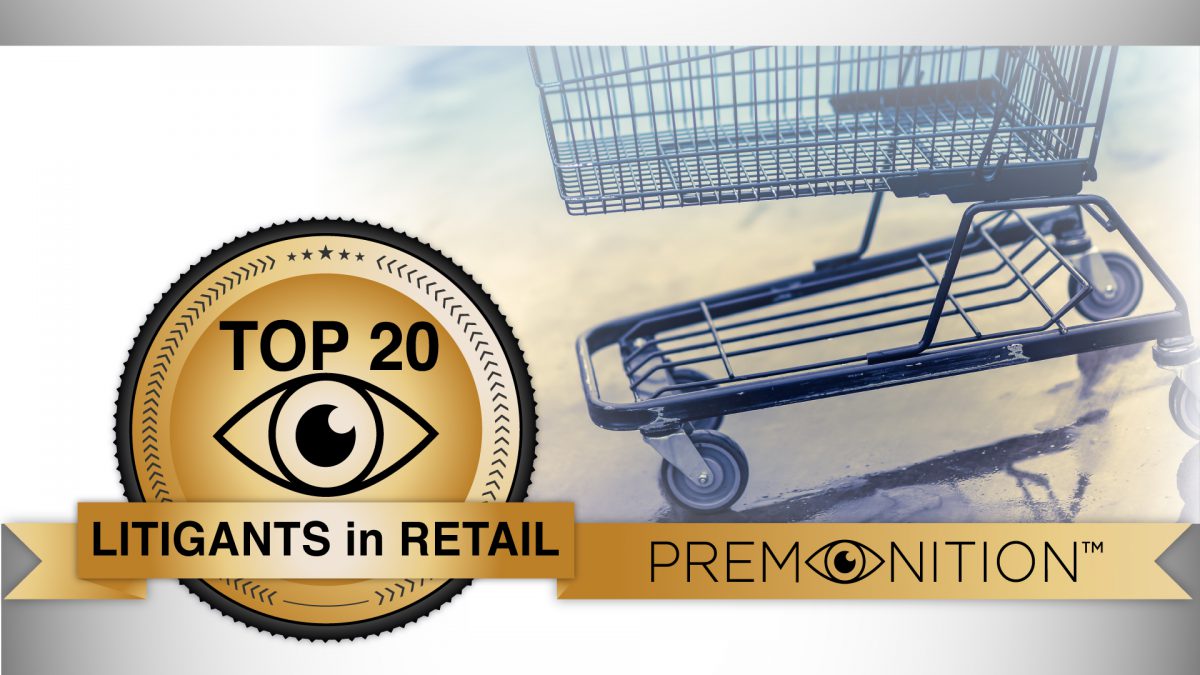
“Nothing compares to the way Walmart litigates cases,” says attorney Christopher Marlowe, quoted in a Bloomberg about Walmart’s “out-of-control crime problem.” According to new stats provided by legal analytics firm Premonition, no retailer can compare to Walmart’s caseload either. Over the past three years, the Arkansas-based giant (which trades as Wal-Mart Stores, Inc.) has litigated over ten times as many cases as the number two company on the list, Safeway, and more than the rest of the top ten combined.
| Name | Cases | Days | Win Rate% |
|---|---|---|---|
| Wal-Mart Stores INC | 1399 | 110 | 86 |
| Safeway INC | 125 | 108 | 81 |
| Macys INC | 59 | 75 | 88 |
| Petsmart INC | 59 | 93 | 81 |
| Speedway LLC | 39 | 87 | 67 |
| Lowes Companies Inc | 33 | 119 | 100 |
| Vons Companies Inc | 26 | 186 | 86 |
| Best Buy Stores LP | 22 | 38 | 100 |
| Nordstrom Inc | 22 | 73 | 71 |
| Office Depot Inc | 21 | 47 | 83 |
| Lord & Taylor LLC | 11 | 75 | 80 |
| Whole Foods Market Inc | 10 | 89 | 100 |
The high incidence of violent crimes taking place in Walmart stores has led to hundreds of premises liability lawsuits, in which victims claim the company failed to meet its obligations to provide reasonable safety measures for customers. And then there are the class action and discrimination suits: $7.5 million for denying health benefits to same sex couples; a $35 million settlement for Washington state employees forced to work through breaks and off the clock; a staggering $188 million settlement on the same charge in Pennsylvania. Even for a corporation that posted $14 billion in profits in 2015, these settlements and the lawyer’s fees associated with litigating so many cases makes a dent.
Thanks to Premonition‘s data, which is sourced from what the company claims is the largest archive of case records in the world, the public now has access to a unique perspective on the performance of retail companies in the courtroom. With an average case duration of 110 days, Walmart took somewhat longer than average to close its proceedings than its competitors, but posted a winning percentage comparable to the rest of the top 12. This may be indicative of its stonewalling legal strategy, which relies on the company’s vast resource advantage to simply outlast individual claimants.
“Talking about our software, we tend to focus on the edge it gives clients in terms of how they go about choosing their representation,” says Premonition Business Development Director Nathan Huber. “Seeing how an attorney performs in different areas of litigation, or before a certain judge, can confer a huge advantage.”
“But that’s just the tip of the iceberg,” continues Huber. “In the Walmart example, our analytics could help them home in on ways to prevent future litigation. Whether that’s drawing attention to practices that are leading to lawsuits among their competitors or showing regions where rates of spurious suits are high, more information could help them take steps to insulate themselves from liability.”
Premonition‘s services are based on a proprietary artificial intelligence system, which pores over millions of documents to identify useful trends and outliers in the data. Clients can develop sophisticated queries, which produce detailed statistics on everything from the efficacy of expert witnesses to the success rate of dismissal motions.
In recent weeks, the firm has issued its findings on a number of industries, including the finance, insurance and automotive sectors. More releases are expected throughout the summer as Premonition continues its campaign to bring greater transparency to America’s court system.

